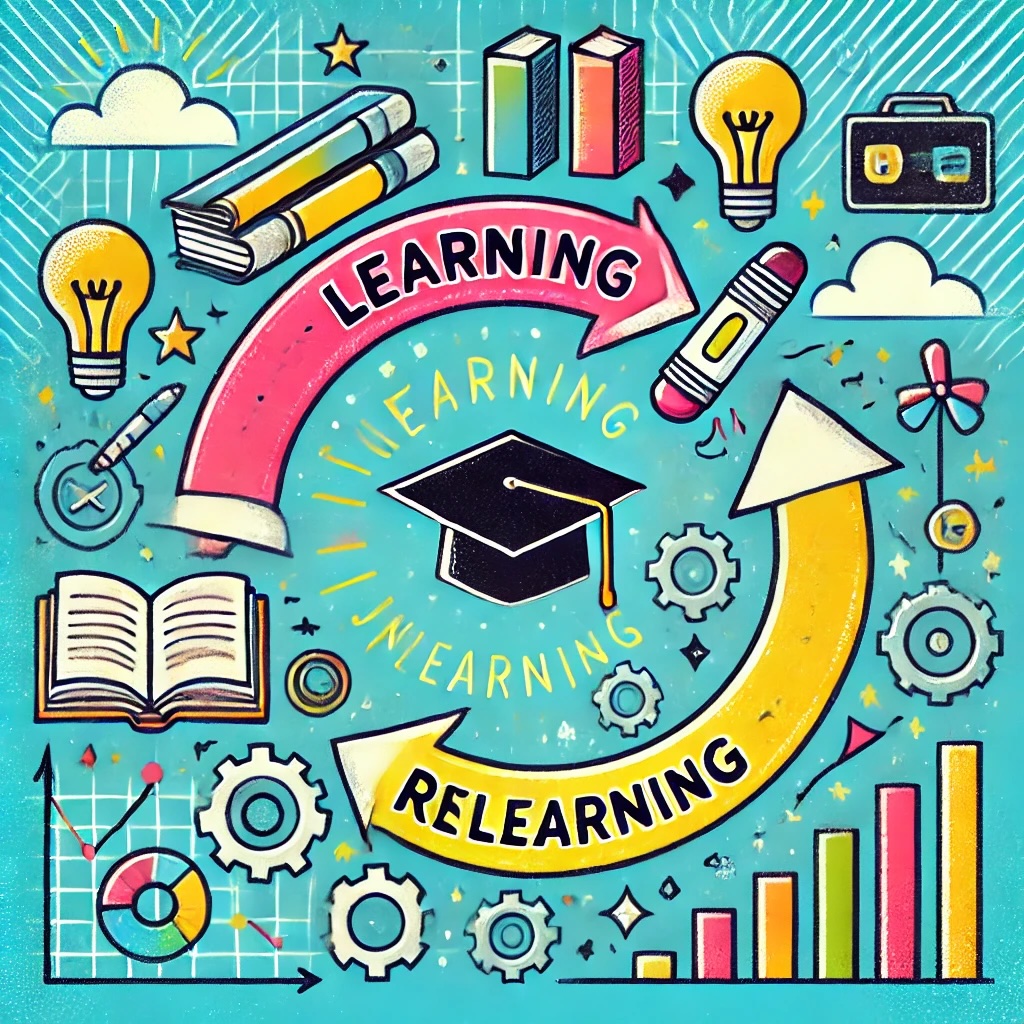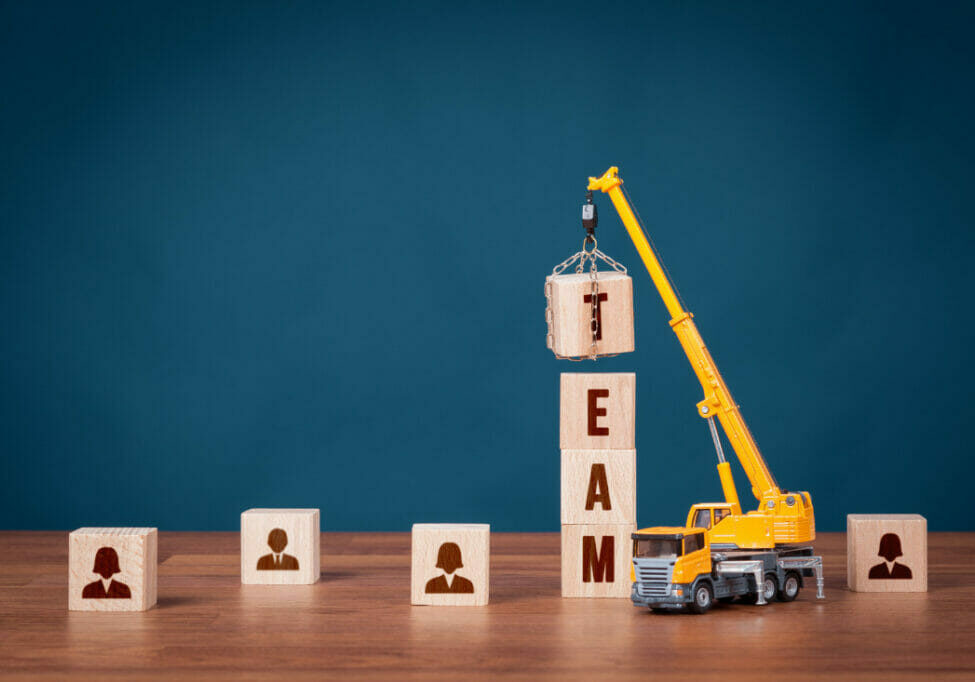Why Continuous Learning Matters More Than Ever

“Resistance is futile. You will be assimilated.”
– The Borg Collective, Star Trek
Okay, I’m not saying we’re all about to be taken over by a hive mind, but let’s face it: technology is everywhere, and it’s changing everything. Whether at work, play, or home, we’re living in a digital revolution. And guess what? Opting out isn’t an option anymore. Technology isn’t just knocking on the door; it’s already moved in, made itself comfortable, and probably rearranged your living room.
Futurist Ray Kurzweil predicts that by 2045, we will reach the technological singularity, a point where artificial intelligence surpasses human intelligence, resulting in exponential growth in our cognitive capabilities (Futurism) (Pew Research Center). Kurzweil argues that the pace will continue accelerating until, sometime around 2045, human and machine intelligence will merge, and “the knowledge and skills embedded in our brains will be combined with the vastly greater capacity, speed, and knowledge-sharing ability of our own creations.”
We’re all in this together, riding the wave of the fourth industrial revolution, while hoping not to drown! And while tech is reshaping the landscape or work and life, the irony is that the mis-labeled soft skills—those oh-so-human qualities—are even more crucial than ever. It’s not just the digital interface that counts; the human interface is just as vital. Careers and companies that focus on the human benefits of technology will thrive. Live long and prosper, anyone?
Why Lifelong Learning Matters
While Kurzweil’s timeline and predictions may prove to be aggressive, given the technological impact we’ve experienced in the last few decades, it seems prudent to anticipate a future where technology and human experience are even more interconnected. Arguing over whether it’s going to happen by 2045 or 2065 seems academic to me. It’s going to happen. The genie is well and truly out of the bottle. The train has left the station. The horse has bolted… pick your metaphor of choice.
Maybe you have the luxury of an extra year or two before the tsunami comes crashing down on your organization. Hurrah – this gives you time to put on your water wings and proactively increase your skills and adaptability to keep up with these changes. Waiting and reacting afterward won’t cut it; we need to read the writing on the wall and start preparing now.

The Power of Learning, Unlearning, and Relearning
The challenge we all face is that we’re already successful. You have succeeded because of what you know, do, and how you show up. But here’s a little nugget from Dr. Marshall Goldsmith: “What got you here won’t get you there.” So, what are you unlearning? What are you relearning? What are you learning for the first time? Embrace the beginner’s mindset and keep evolving.
I’m heading to a Team Coaching workshop in London this month. Why? Because I want to expand my toolkit, learn from other participants, and soak up wisdom from professors who’ve studied team dynamics for over two decades. It’s all about keeping that learning curve sharp and steep.
I’m also on a journey to unlearn perfectionism. High standards are great, but sometimes, aiming for perfection in every detail can be more hindrance than help. I’m learning that having great standards can be enough. By easing off the pressure of dotting every “i” and crossing every “t”, I’m creating the space to focus on a few projects at a time instead of trying to tackle all projects simultaneously. This shift not only boosts productivity but also enhances the quality of my work and personal well-being.
Let’s get real. The high pace of change can be overwhelming. Alvin Toffler called it “future shock.” But rather than being shocked, let’s be prepared. Embrace learning, unlearning, and relearning as vital skills for navigating this ever-changing world. Are you investing in your learning and adaptability to embrace new roles?
How to Learn: A Pragmatic Approach
Look Up: Identifying What to Learn
Before diving into the how, it’s essential to figure out the what. What new skills do you need? What can you take from good to great? Maybe you want to learn something just for the joy of it. Here are a few questions to help you identify your learning goals:
- New Skills: What skills are emerging in your industry? How can they enhance your current role?
- Improvement: What areas of your expertise could use some polishing? What would taking this skill from good to great look like?
- Personal Growth: What have you always wanted to learn, just for the fun of it? A new language? A musical instrument?
- Unlearning: As we progress in our careers, we may need to stop doing or unlearn habits that were once successful but are now holding us back. What habits or practices do you need to unlearn to make room for new growth?
Take a moment to reflect and jot down your learning goals. This will give you a roadmap for your learning journey.
Show Up: Gaining New Knowledge, Skills, and Experience
Once you’ve identified what to learn, the next step is figuring out how to acquire this new knowledge. Here are five practical suggestions:
- Reading: Dive into books, articles, and research papers related to your chosen topic. Whether it’s industry-specific knowledge or personal development, reading is a powerful way to learn.
- Mentoring: Find a mentor who excels in the area you want to improve. Learning from someone else’s experience can provide invaluable insights and guidance.
- Volunteering: Offer your time and skills to organizations that align with your learning goals. Volunteering provides hands-on experience and a chance to apply what you’ve learned in real-world scenarios.
- Online Courses: Enroll in online courses or webinars. Platforms like Coursera, Udemy, and LinkedIn Learning offer a plethora of options to learn at your own pace.
- Networking: Attend conferences, workshops, and meetups. Engaging with others in your field can open up new perspectives and opportunities for learning.
Step Up: Start Today
Don’t wait for things to quieten down at work before you start your learning journey, or for that one big project to wrap up. These are false summits. There is always another busy day, another project that will more than fill the space you anticipate.
Instead, be your own ally, and make the choice to start investing in yourself today. Five minutes, 15 minutes, 50 minutes of deliberate learning and growth could be the difference between staying stagnant and propelling your career forward. So, take that first step and commit to continuous learning—you’ll thank yourself later.
Remember, lifelong learning is a continuous process. By looking up to identify what to learn, showing up to gain new knowledge, and stepping up to start today, you’re setting yourself on a path to personal and professional growth.
So, what’s your next move? How will you embrace learning today? Take your first steps to future you today.

Let's Connect





